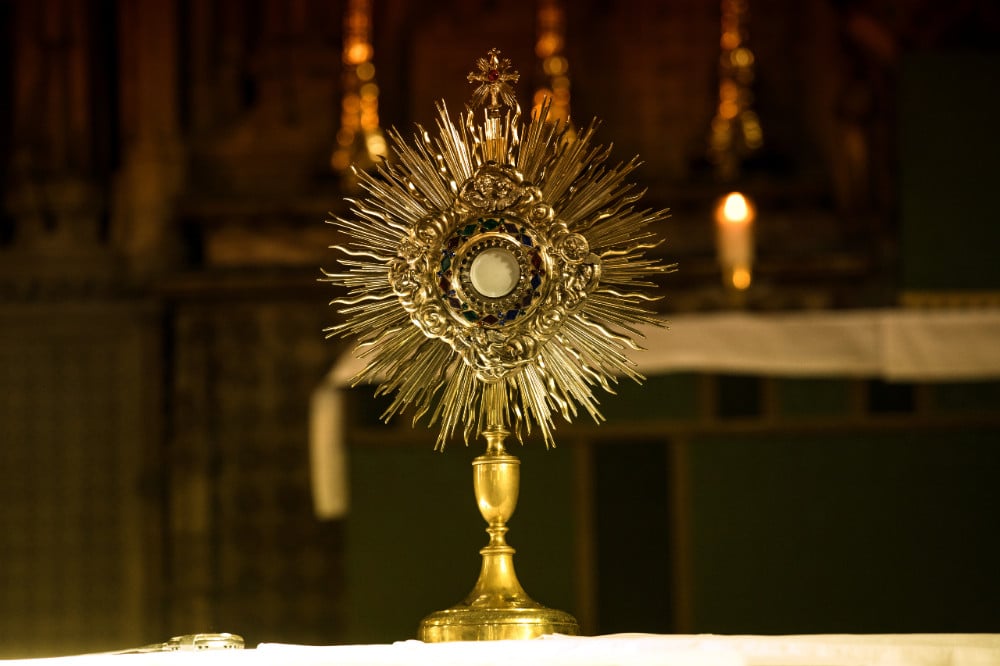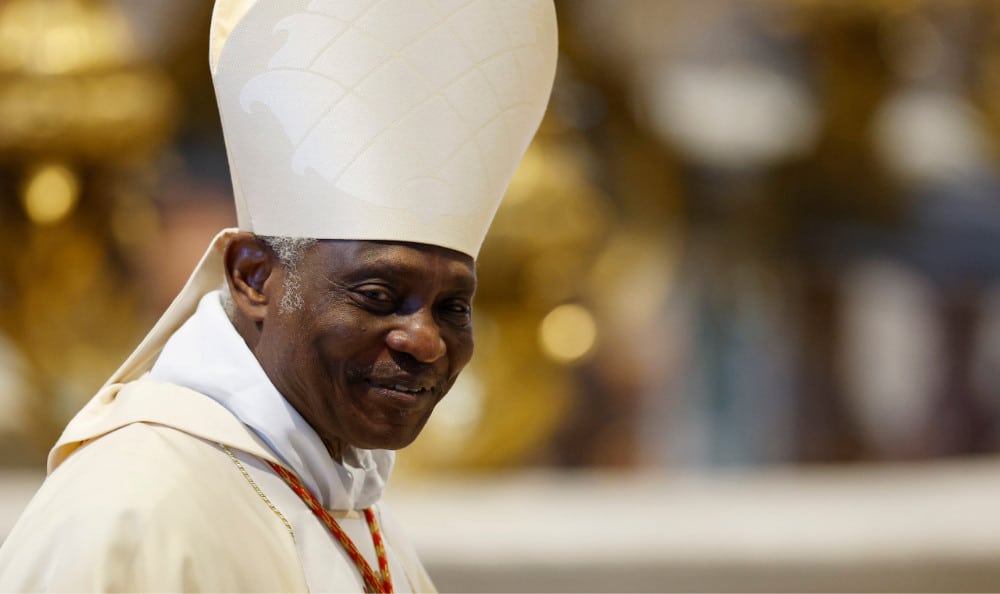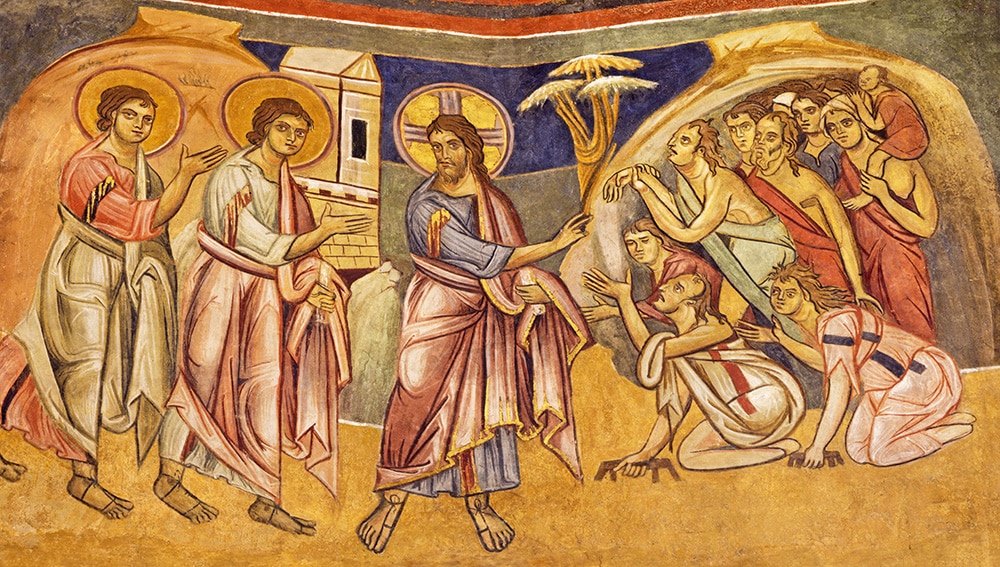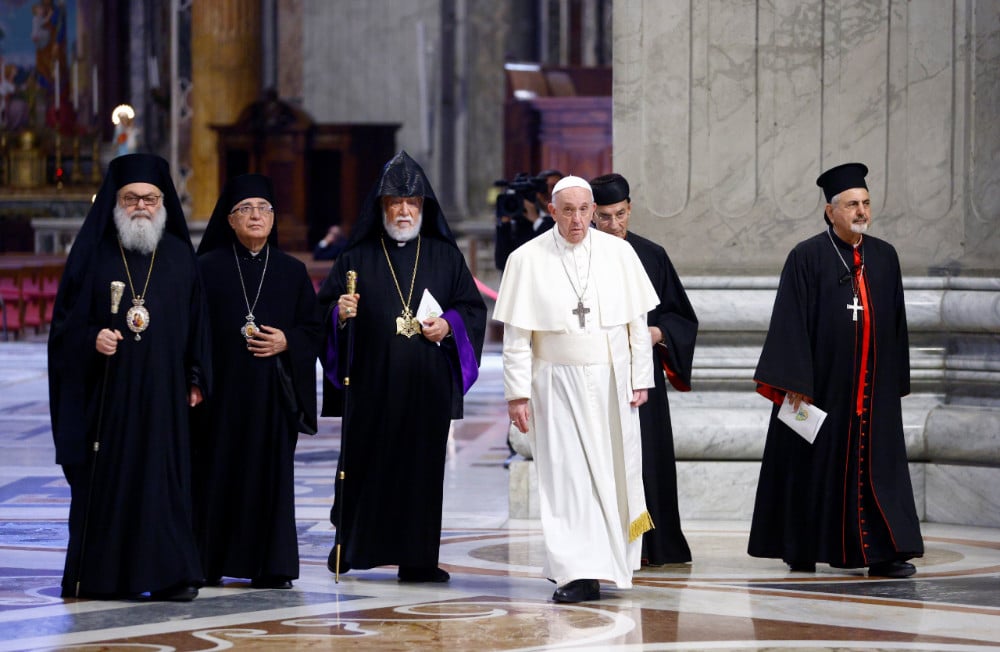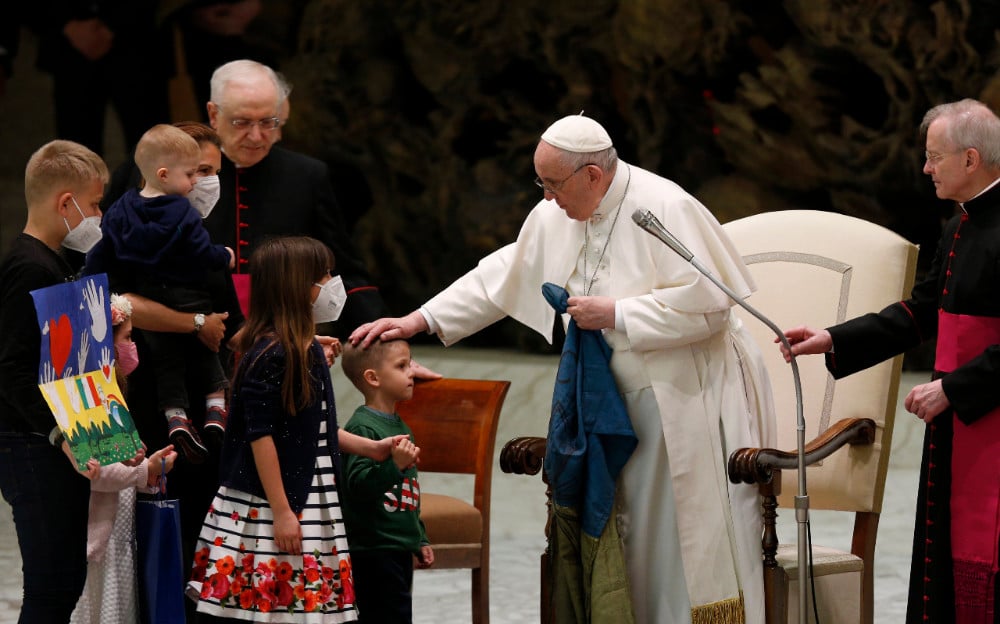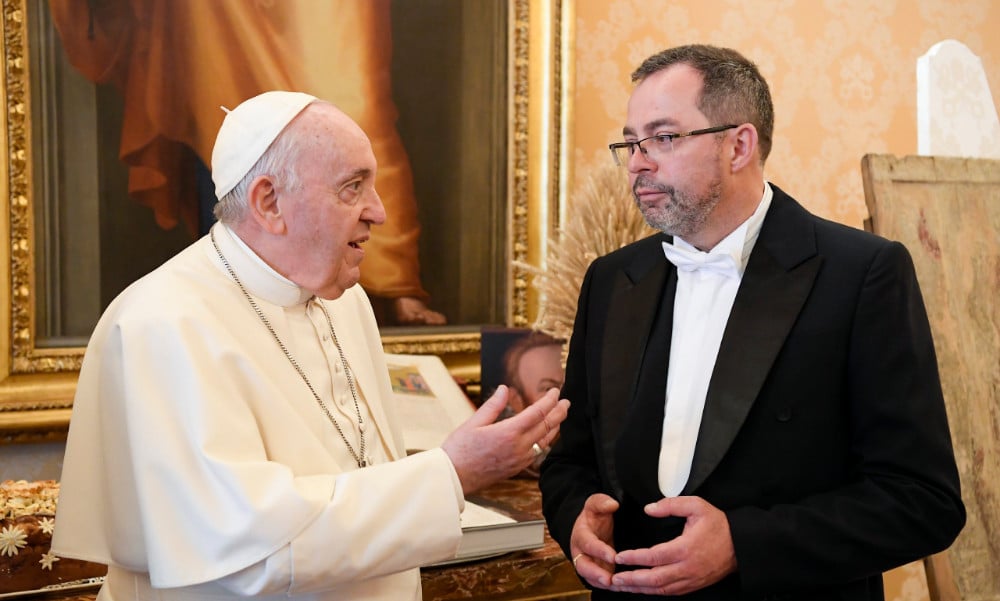The heartbeat of Catholic life is the Eucharist. This is why the American bishops launched a three-year initiative last fall in the grassroots of the Church to revive devotion and belief in the Real Presence of Jesus in the consecrated host.
Christ is alive in the Eucharist, but surveys show that more Catholics see his body and blood as merely a symbol. Given this, The laity is the target audience of the U.S. Conference of Catholic Bishops’ initiative for the Eucharistic Revival, which concludes with a National Eucharistic Congress, the first in 50 years, in the summer of 2024, expected to draw 100,000 to Indianapolis.
Religious orders, however, are not only participating in the effort; they are also seizing the opportunity of the Eucharistic Revival to encourage vocations.
Read more articles from our Spring Vocation Special section here.

“It is our hope that by centering our focus on the Eucharist through this revival that our parishioners will see the importance of going out into the world, seeing themselves as missionaries of the Good News of Christ,” Paulist Father Michael Hennessy told Our Sunday Visitor. “This is central to who we are as Paulists: evangelization in the world. If Paulists stress this, we hope that young men will be drawn to this mission as well and would consider being a priest with our community.”
According to Father Hennessy: “We Paulists see it as a gift from the Holy Spirit that this Eucharistic Revival and the synod on synodality are happening concurrently. Through this synod, of which all our Paulist parishes are actively engaging, we seek to hear the realities of the lives of our peoples. Once hearing the voices of all people — active Catholics, and those who have drifted from the Church — we can then seek out ways that the Eucharist can assist them in their journeys of life.”
Moving hearts
The international congregation Servants of the Blessed Sacrament is a contemplative society of women who provide two chapels for the purpose of Eucharistic adoration in the United States, one in Waterville, Maine, and the other in Pueblo, Colorado. The congregation follows the teachings of St. Peter Julian Eymard.
“The Eucharist is our life! Following in the footsteps of St. Peter Julian Eymard, we seek with the Church to discover the riches of this great mystery of faith which is the Eucharist, to live by it and witness to it,” the congregation’s website states.
“The center of our lives as Servants of the Blessed Sacrament is faith and witness to the presence and love of Jesus in the Blessed Sacrament,” Servant Sister Catherine Maire told Our Sunday Visitor. “Eucharistic adoration helps us to be one with Jesus at the right hand of the Father who forever intercedes for all his people.
“The Eucharist is like a multifaceted diamond. Its many dimensions are endless. … St. Peter Julian Eymard, our founder, said in his final homily, ‘You have the Eucharist, what more do you need?'”
The Servants will participate in the three-year effort by offering a public retreat on the Beatitudes and the Eucharist led by Father J.T. Lane of the Blessed Sacrament Fathers. In 2023, the sisters plan to present a workshop on the many dimensions of the Eucharist as food, reconciliation, transformation, presence and mission.
The Dominican Nuns of Marbury, Alabama, at St. Jude Monastery, call themselves Mary’s Guardians of Honor. Bishop Andrew Cozzens of Crookston, Minnesota, chairman of the USCCB’s Committee on Evangelization and Catechesis, asked them last fall to participate by intercessory prayer for the Eucharistic Revival. That was followed by a request from a sister on the Eucharistic Revival team for each of them to spiritually adopt a priest designated as a National Eucharistic Missionary.
“We were happy to agree to these requests, since our vocation as Dominican nuns is precisely that of living a life of prayer for the salvation of souls,” Sister Mary Jordan told Our Sunday Visitor. “Just as Our Lady’s prayer supported the mission of the apostles, so our prayer will help support the work of the Eucharistic Revival and obtain the grace from God to convert hearts and bring many souls closer to him.”
She continued: “Vocation flows from relationship — Jesus Christ is the one who calls men and women to give up everything to follow him in religious life. If more Catholics have a living faith in the Real Presence of Jesus Christ in the Eucharist, and spend time growing in friendship with him through prayer, we would expect more young people to hear and respond to his call.”
The order plans several vocation retreats, including one in May, to introduce young women to their Dominican monastic vocation.
“God is the one who moves hearts; our part is to help spread the word that our monastery is here,” Sister Mary Jordan said.
A new approach
Paulist Father Hennessy thinks religious orders must change with the times to attract new vocations.
“It has become clear that men who are in our demographic — single, in their 20s and 30s — have a different context of their faith than past generations,” Hennessy told Our Sunday Visitor. “We are in the process of better understanding these men — what their needs, concerns and desires are. Once we understand this, we can adjust the ways we do vocation ministry. Gone are the days that a few words in a bulletin are enough to attract men to inquire about the priesthood. Young adult Catholics, if they come to Mass, don’t generally read bulletins.”
The Sister Servants of the Holy Spirit of Perpetual Adoration, who wear distinctive pink habits, are a cloistered order who pray to the Eucharist 24 hours a day, seven days a week. They pray the Rosary in view of the public in their adoration chapel in Philadelphia each day at 4:30 p.m. The chapel is open to the public from 6:30 a.m. to 5:30 p.m., but a nun is always before the Blessed Sacrament, said Superior Sister Mary Amatrix.
“The power of the Lord and the Real Presence are at the center of our life and our striving for an intimate relationship with the Lord and for all those we are praying for,” she told Our Sunday Visitor.
Sister Mary believes that devotion to their calling to Eucharistic adoration is the best call for vocations “for women who feel the call to serve the Lord who are looking for an order that has Eucharistic adoration and perpetual adoration.”
The efficacy of Eucharistic adoration as a vocation seeker is evidenced throughout Church history. St. Faustina, founder of the movement of the Divine Mercy, asserted that she was called to religious life while attending the exposition of the Blessed Sacrament when she was 7 years old. The conversions of Sts. Elizabeth Ann Seton from Protestantism, John Henry Newman from Anglicanism and the Venerable Hermann Cohen from Judaism followed Eucharistic adoration. Cohen, of the Carmelite order, established the now worldwide spread of the practice of nocturnal adoration.
St. Faustina made this entry in her diary on June 23, 1937, during her daily chapel visit: “As I was praying before the Most Blessed Sacrament, my physical sufferings ceased suddenly, and I heard this voice in my soul: You see, I can give you everything in one moment. I am not constrained by any law.”
Joseph R. LaPlante writes from Rhode Island.

